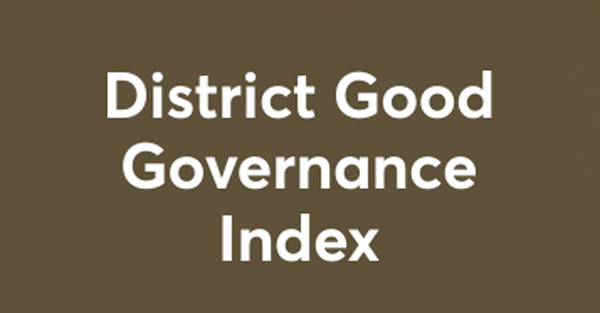The Chief Secretary recently unveiled the 3rd edition of the District Good Governance Index (DGGI 3.0) in the presence of various Government officials. The index evaluates the performance of districts in accomplishing a set of 385 deliverables assigned to them for the year 2022-2023. CS commended the Planning, Development, and Monitoring Department for efforts in conducting this extensive exercise and compiling rankings from the panchayat to the district level.
Jammu and Kashmir was the first region in India to successfully implement the District Good Governance Index model. J&K took the initiative to adopt this model, and its successful implementation has set an example for other states and union territories in the country. By introducing the DGGI, J&K aimed to promote good governance practices and enhance the overall development of its districts up to panchayat levels. The index provides a comprehensive framework for evaluating the performance of districts, taking into account multiple sectors such as agriculture, industry, health, education, infrastructure, and more. It enables evidence-based decision-making, transparency and accountability in governance. DGGI enables evidence-based decision-making while promoting citizen participation and fostering a culture of learning and continuous improvement. By addressing developmental gaps and promoting best practices, DGGI ensures more efficient and effective delivery of services to citizens.
The wide variations in performance among districts in the DGGI report highlight the need for introspection and prompt action by District Administrations. The Chief Secretary’s suggestion for proper introspection is essential to identifying the reasons behind the performance disparities and devising strategies for improvement. District Administrations should thoroughly analyse the DGGI rankings, scores, and sector-wise performance indicators to identify areas where they have performed well and areas that require improvement. A detailed review will provide insights into the specific factors contributing to variations in performance. It is crucial to identify the underlying causes of variations in performance. The variations can be attributed to a range of factors, including differing levels of resources, capacity, infrastructure and socio-economic conditions across districts. The efficiency and effectiveness of district-level leadership and administration play a crucial role in governance outcomes. Strong leadership, proactive decision-making and effective implementation strategies can positively impact district performance. Whatever the reasons, corrective measures should be taken immediately.
Jammu scored the number one rank and credit goes to the District Administration. The performance of the Reasi district, particularly concerning the potential of the Katra region and the Vaishno Devi pilgrims, is indeed an area of concern. Given the significance of the Shri Mata Vaishno Devi ji shrine and the large number of pilgrims it attracts, it is essential to ensure that the district, especially the area around Katra, is well-developed and equipped to cater to the needs of the pilgrims. Addressing the specific challenges requires a multi-faceted approach involving the district administration, tourism authorities, infrastructure development agencies, local communities and other relevant stakeholders. By focusing on infrastructure, tourism facilities, safety measures, sanitation, pilgrim services and community engagement, the Reasi district can better harness its potential and provide a positive experience for Vaishno Devi pilgrims while promoting sustainable and inclusive development throughout the entire region.
The DGGI allows the measurement of the impact and progress of interventions undertaken by the administration. Providing a standardised assessment framework, it helps in evaluating the outcomes of various development programmes and policies, facilitating data-driven decision-making and policy refinement. The successful implementation of the DGGI in Jammu and Kashmir has inspired other states and UTs to implement similar mechanisms for evaluating and enhancing their governance performance.
By leveraging the insights and recommendations from the DGGI report, J&K can progress towards becoming a model UT in terms of governance, development, and the overall well-being of its citizens. Competition among all twenty districts is the motivating factor. The commitment of the administration, along with active participation from various stakeholders, will be key to realising this vision and ensuring sustained progress in the years to come.


